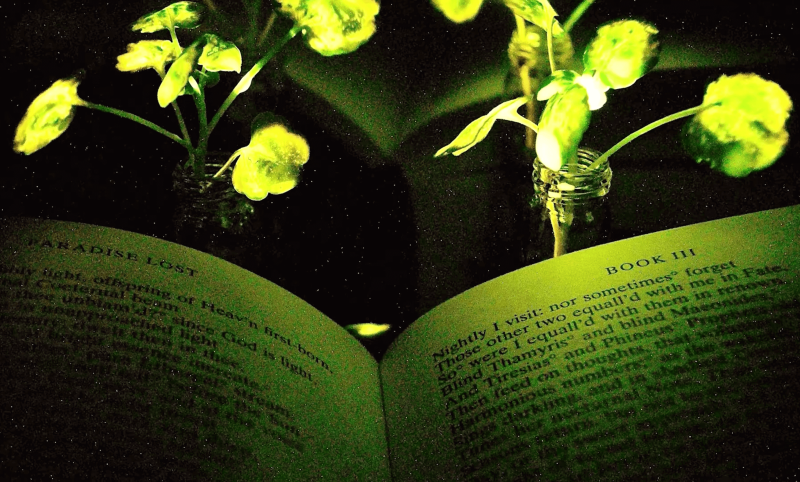Imagine that instead of switching on a lamp when it gets dark, you could read by the light of a glowing plant on your desk.
MIT engineers have taken a critical first step toward making that vision a reality. By embedding specialized nanoparticles into the leaves of a watercress plant, they induced the plants to give off dim light for nearly four hours. They believe that, with further optimization, such plants will one day be bright enough to illuminate a workspace.
[youtube https://www.youtube.com/watch?v=hp-vqd8zJM4]…
This technology could also be used to provide low-intensity indoor lighting, or to transform trees into self-powered streetlights, the researchers say.
…
To create their glowing plants, the MIT team turned to luciferase, the enzyme that gives fireflies their glow. Luciferase acts on a molecule called luciferin, causing it to emit light. Another molecule called co-enzyme A helps the process along by removing a reaction byproduct that can inhibit luciferase activity.
The MIT team packaged each of these three components into a different type of nanoparticle carrier.
…
The researchers’ early efforts at the start of the project yielded plants that could glow for about 45 minutes, which they have since improved to 3.5 hours.
[Editor’s note: Read the full study (behind paywall)]
Read full, original post: Engineers create plants that glow































